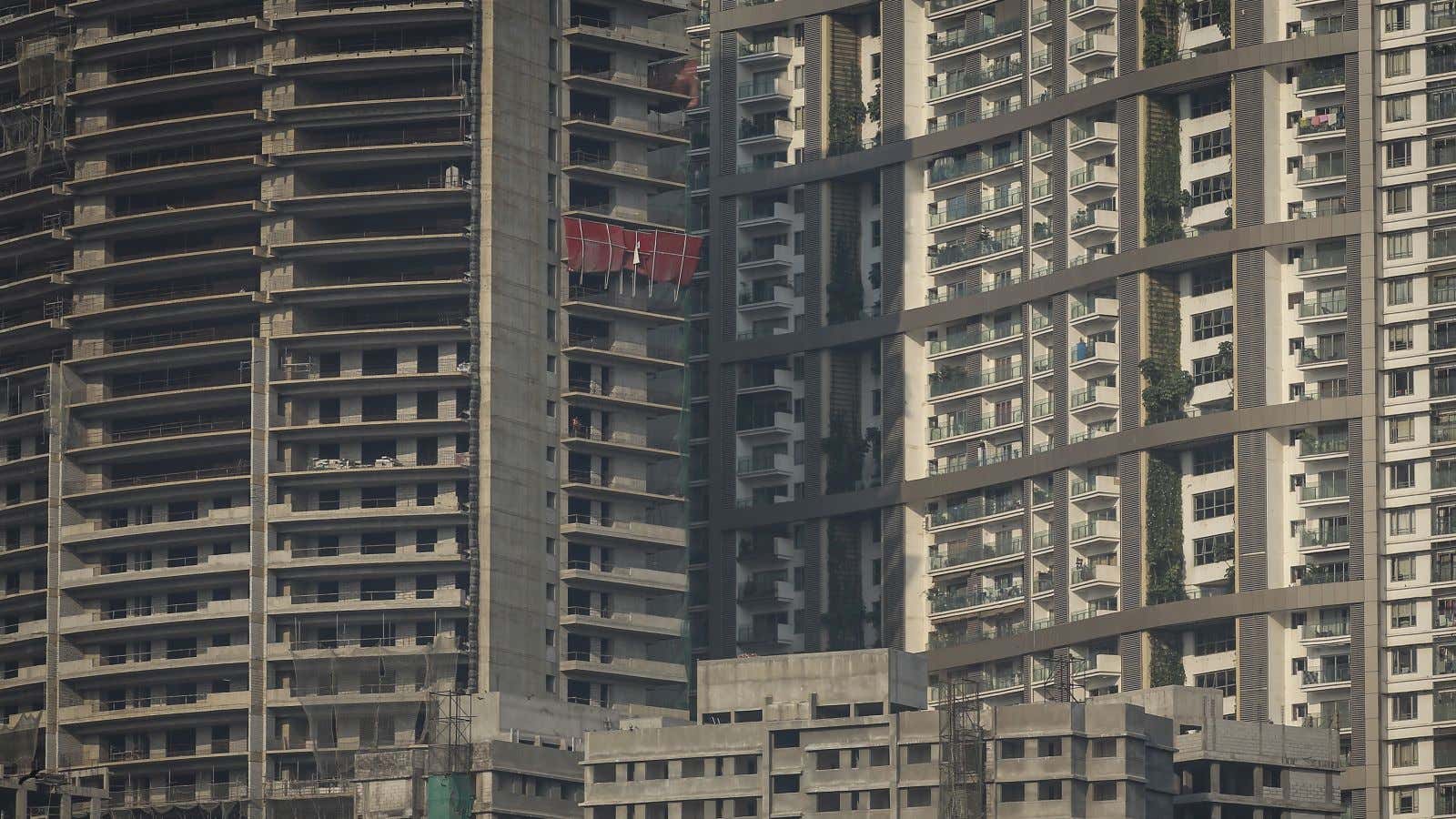Owning a home is a lifetime’s dream for most Indian households, but the cumbersome process of buying one has often left them harrowed. There could soon be help at hand now.
On May 23, the Narendra Modi government passed an amendment to the Insolvency and Bankruptcy Code (IBC) 2016, which was aimed at fast-tracking the bad-loan resolution process. With this amendment, homebuyers will be treated as financial creditors. Essentially, if a firm defaults on loan payments and is taken to the bankruptcy court, then these homebuyers will be treated at par with banks during the recovery process.
This comes as a major relief to customers of builders such as Jaypee Infratech, Unitech, Amrapali, and Parsvnath Developers, against whom recovery processes have been initiated in the bankruptcy court.
For instance, last year, about 32,000 investors in Jaypee Infratech’s projects challenged the insolvency proceedings against the company in India’s supreme court. The developer had failed to deliver 22,500 flats. Similarly, Unitech, which reportedly is yet to deliver 16,299 flats worth Rs7,816 crore ($1.14 billion), has also been taken to the bankruptcy court.
Earlier when a realty firm went bankrupt, financial creditors such as banks and institutions were given priority in terms of dues recovery, explained Ramesh Nair, CEO of real-estate consultancy firm JLL India. They were followed by operational creditors such as vendors and employees, he said.
“Homebuyers were widely regarded as merely consumers and did not specifically fall under the liquidation claim waterfall, placing them at a disadvantageous position…,” added Nair.
With this amendment to the IBC, such disgruntled customers could find a happier ending. In all, about 62% of under-construction housing projects across 50 cities are typically delayed, according to Liases Forras, a research firm. The delays can last from few months to several years.
“We will now see builders become more cautious while taking funds from financial institutions and banks, as they would now also be accountable to homebuyers as well as the financial institutions if their business goes belly-up,” said Anuj Puri, chairman of ANAROCK property consultants.
However, it is not all good news for banks, since they will now have to share the first recovery claims with property buyers. Already piled with bad loans in real estate, loans to the sector have dropped from over 68% in 2013 to 17% in 2016. Expect more belt-tightening.
